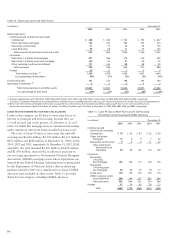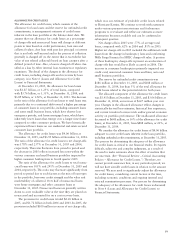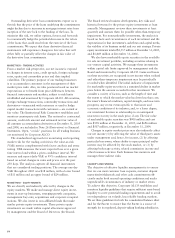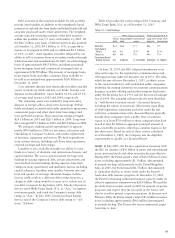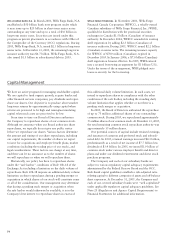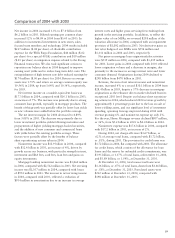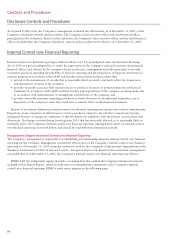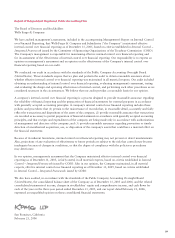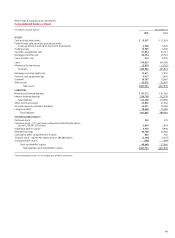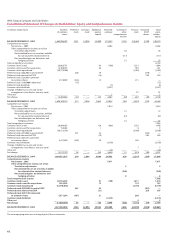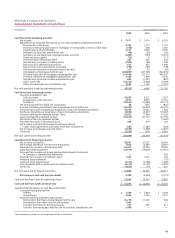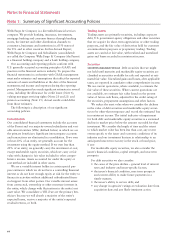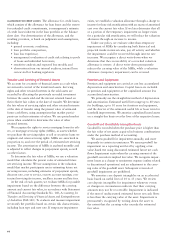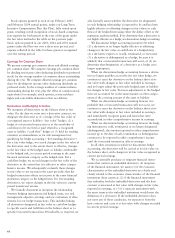Wells Fargo 2005 Annual Report Download - page 60
Download and view the complete annual report
Please find page 60 of the 2005 Wells Fargo annual report below. You can navigate through the pages in the report by either clicking on the pages listed below, or by using the keyword search tool below to find specific information within the annual report.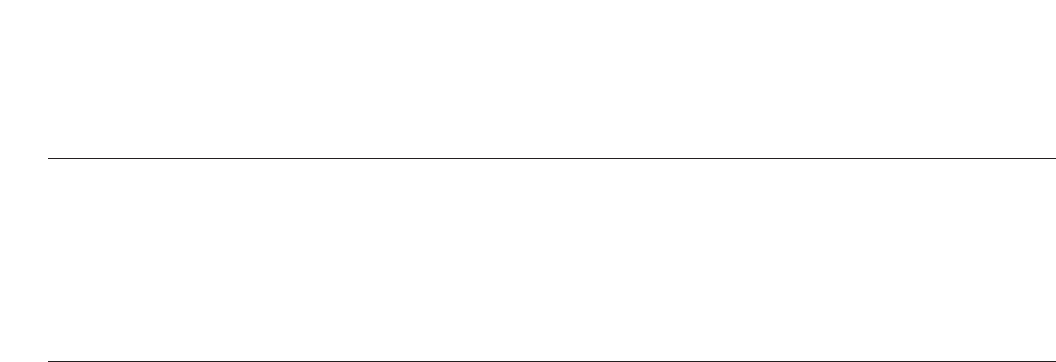
58
Internal control over financial reporting is defined in Rule 13a-15(f) promulgated under the Securities Exchange
Act of 1934 as a process designed by, or under the supervision of, the company’s principal executive and principal
financial officers and effected by the company’s board of directors, management and other personnel, to provide
reasonable assurance regarding the reliability of financial reporting and the preparation of financial statements for
external purposes in accordance with GAAP and includes those policies and procedures that:
• pertain to the maintenance of records that in reasonable detail accurately and fairly reflect the transactions
and dispositions of assets of the company;
• provide reasonable assurance that transactions are recorded as necessary to permit preparation of financial
statements in accordance with GAAP, and that receipts and expenditures of the company are being made only
in accordance with authorizations of management and directors of the company; and
• provide reasonable assurance regarding prevention or timely detection of unauthorized acquisition, use or
disposition of the company’s assets that could have a material effect on the financial statements.
Because of its inherent limitations, internal control over financial reporting may not prevent or detect misstatements.
Projections of any evaluation of effectiveness to future periods are subject to the risk that controls may become
inadequate because of changes in conditions, or that the degree of compliance with the policies or procedures may
deteriorate. No change occurred during fourth quarter 2005 that has materially affected, or is reasonably likely to
materially affect, the Company’s internal control over financial reporting. Management’s report on internal control
over financial reporting is set forth below, and should be read with these limitations in mind.
Management’s Report on Internal Control over Financial Reporting
The Company’s management is responsible for establishing and maintaining adequate internal control over financial
reporting for the Company. Management assessed the effectiveness of the Company’s internal control over financial
reporting as of December 31, 2005, using the criteria set forth by the Committee of Sponsoring Organizations of the
Treadway Commission (COSO) in Internal Control – Integrated Framework. Based on this assessment, management
concluded that as of December 31, 2005, the Company’s internal control over financial reporting was effective.
KPMG LLP, the independent registered public accounting firm that audited the Company’s financial statements
included in this Annual Report, issued an audit report on management’s assessment of the Company’s internal
control over financial reporting. KPMG’s audit report appears on the following page.
Internal Control over Financial Reporting
Controls and Procedures
Disclosure Controls and Procedures
As required by SEC rules, the Company’s management evaluated the effectiveness, as of December 31, 2005, of the
Company’s disclosure controls and procedures. The Company’s chief executive officer and chief financial officer
participated in the evaluation. Based on this evaluation, the Company’s chief executive officer and the chief financial
officer concluded that the Company’s disclosure controls and procedures were effective as of December 31, 2005.




